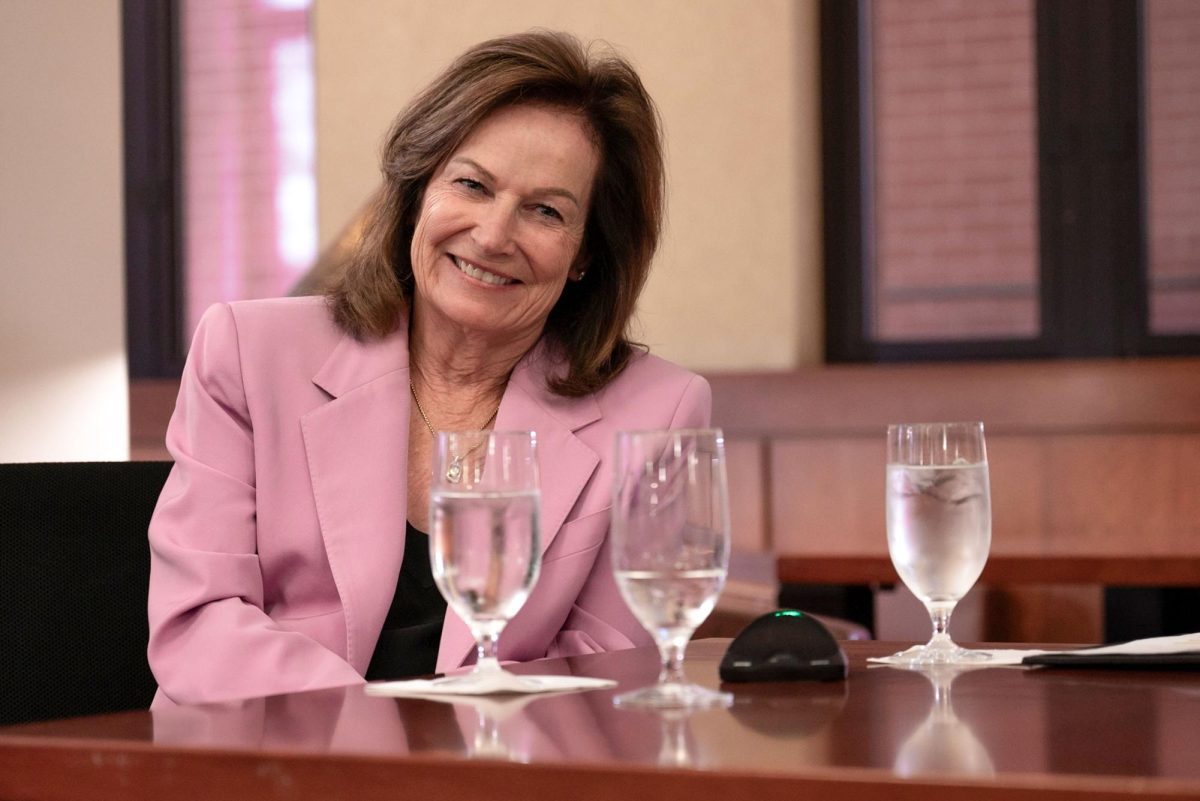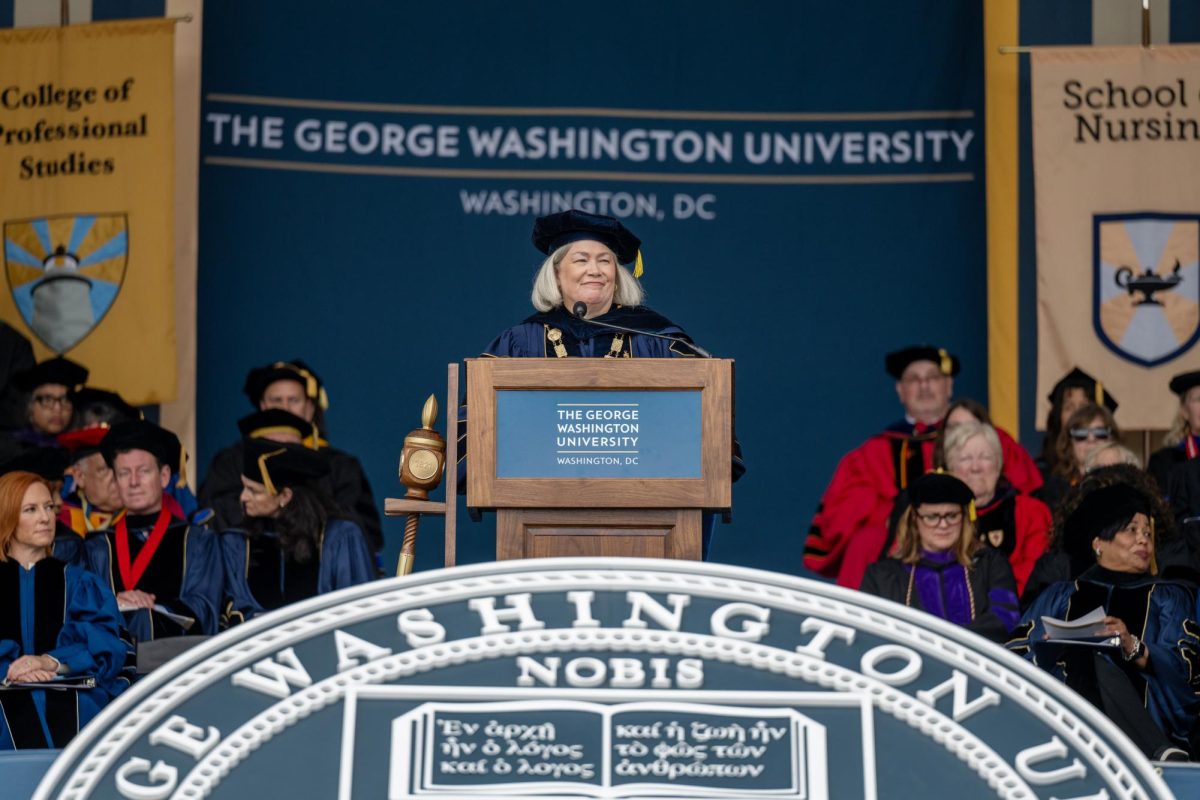A retired federal circuit court judge spoke about her path to the bench and experiences as a female trial lawyer in the Tasher Great Room at GW Law on Tuesday night.
Judge Kathleen O’Malley, who served as the U.S. Circuit Judge for the Federal Circuit from 2010 until she retired in 2022, discussed the sexism she faced throughout her career and lessons from being mentored as a law clerk. The Center for Law and Technology hosted the conversation moderated by two of O’Malley’s former clerks, Matthew Sipe and Kevin Zhang.
O’Malley said she first realized she was interested in law at 13 years old when she read a book on Gideon v. Wainwright, the 1963 Supreme Court case that granted all Americans the right to an attorney in criminal cases. O’Malley said she was so “fascinated” by how the book portrayed the inner workings of the court that she decided she wanted to be a federal judge.
“My mother said, you’re out of your mind,” O’Malley said. “But I never let it go. I always believed that it could happen, and that’s what I always wanted to do.”
After graduating with a law degree from Case Western University in 1982, O’Malley said she served as a law clerk for Circuit Judge Nathaniel Jones from 1982 to 1983, and he became her mentor and friend. O’Malley said he taught her that a judge must stop to consider the “socially best” result of a case and attempt to evaluate cases in an “intellectually honest” way.
“We had a lot of cases where we would struggle, and we would have to go in the direction that he didn’t want to go,” O’Malley said. “It hurt him in his heart of hearts. He would say, that’s what the difficult choice is when you are a judge.”
After her clerkship, O’Malley said she practiced law in Ohio in the 1980s and 1990s where she sometimes had to endure sexist behavior as a female lawyer. She also said women at her firm would judge her for wanting to be a trial lawyer instead of doing “traditional” women’s legal work in the bankruptcy or real estate sections.
O’Malley said she faced more direct sexism in the courtroom from opposing lawyers and judges.
“There was a famous judge in Cleveland who, you had to wear a skirt and you had to wear high heels,” O’Malley said. “You were never allowed to ever wear pants or pant suits if you’re a woman.”
O’Malley said she was used to people giving her a hard time because she grew up with three older brothers and knew how to handle that behavior. She said you have to “fight those fights” to be taken seriously as a woman in a male-dominated profession. About one-third of active federal judges are women, according to the Administrative Office of the US Courts.
“If you know you’re good, let them say whatever they want to say, let them try to knock you down,” O’Malley said.
O’Malley said her confirmation process to become District Judge for the Northern District of Ohio in 1994 went smoothly but, in 2010 when President Barack Obama nominated her for her federal circuit court post, the Senate had become more divided and the process was delayed.
“The first time around, I was nominated in August and got through on October 8,” O’Malley said. “The second time around, I was nominated in January, and didn’t make it through till the following December.”
O’Malley said over the years she involved law clerks in her work and wanted to serve as their mentor.
“I liked the fact that I still get calls, ‘Judge, I need some advice. I’m thinking about leaving my firm, I’m thinking about trying something different. What do you think about that?’” O’Malley said. “It really makes me feel connected and good that you still ask me about the next step in your career, even though I know you’re smart enough to take that next step.”











